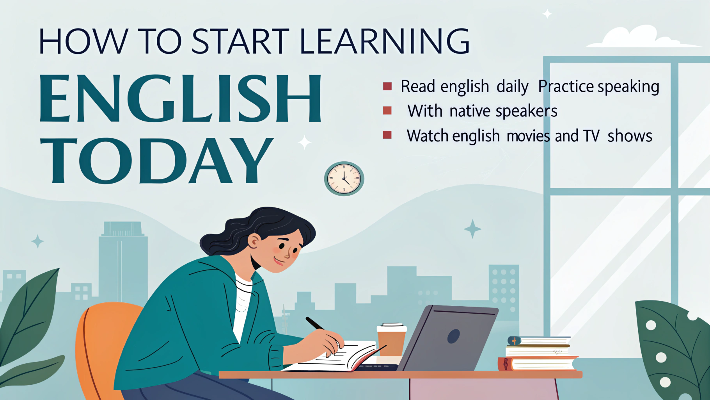Welcome to our guide on English language learning. Starting with beginner English lessons can seem daunting. But, with the right tools, you can reach your goals. Today, learning English online is easier than ever, thanks to many platforms and apps.https://www.youtube.com/embed/YB8pRsGCL2s
We aim to offer a helpful and easy-to-follow guide for English beginners. With the growth of online learning, starting your English journey has never been simpler.
Key Takeaways
- English language learning is easy with online resources
- Beginner English lessons are available on various platforms
- Language learning apps can help you learn English quickly
- English language learning requires practice and dedication
- Online communities can support your English language learning journey
- Setting goals and tracking progress is essential for English language learning
Essential Tools and Resources for Beginning English Learners
Learning English can seem tough, but the right tools make it easier and fun. As a beginner, you need online English courses that fit your level. These courses help you get better at reading, writing, listening, and speaking.
Platforms like Duolingo, Babbel, and Rosetta Stone offer interactive lessons. They give you feedback, track your progress, and let you practice with native speakers.
Books and materials like grammar guides and vocabulary builders are also helpful. Language learning communities and forums let you meet other learners. You can practice, share tips, and get feedback from native speakers.
Online Learning Platforms and Apps
- Duolingo: a popular language learning app with interactive lessons and exercises
- Babbel: a comprehensive online course with personalized feedback and progress tracking
- Rosetta Stone: a well-known language learning platform with interactive lessons and speech recognition technology
Basic English Learning Books and Materials
Grammar guides, vocabulary builders, and workbooks offer extra support and practice.
Language Learning Communities and Forums
Meeting other learners and native speakers keeps you motivated. You can practice, share tips, and get feedback on your progress.
How to Start Learning English Today: Your First Steps

Starting to learn English can be both thrilling and scary. To succeed, you need a clear plan. One great tip is to surround yourself with the language. Listen to English music, watch English movies, and talk to native speakers.
Creating a study schedule is also key. Set aside time each day for speaking, writing, and reading in English. Being consistent is crucial. Also, use spaced repetition to review new words and grammar rules.
Here are some tips for beginners:
- Active listening: Pay attention to how native speakers pronounce words and phrases, and try to mimic them.
- Language exchange: Find a language partner who can help you practice speaking and listening.
- Self-study: Use online resources, such as language learning apps and websites, to supplement your learning.
By following these steps and tips, you’ll build a strong English foundation. Stay motivated, be patient, and don’t worry about mistakes. They’re a big part of learning.
Creating an Effective English Study Schedule
To get better at English, you need a study plan that fits you. Being consistent and balanced is crucial. A routine with daily practice, setting goals, and tracking progress keeps you motivated and moving forward.
Here are some tips for your study schedule:
- Make time each day for practice. Focus on words, grammar, and listening.
- Have realistic goals. Break them down into smaller tasks you can do.
- Keep track of your progress. Use apps or journals to see how far you’ve come.
- Work on all language skills. This includes reading, writing, speaking, and listening.
Using these tips, you’ll improve your English skills and keep making progress. Don’t forget to be flexible and change your schedule if needed. This way, it will always support your language learning goals.
Stick to your study plan and use the right strategies. With regular practice and hard work, you’ll get better at English. Soon, you’ll be able to communicate fluently and open up new opportunities.
| Language Skill | Practice Activities |
|---|---|
| Reading | Reading comprehension exercises, vocabulary building |
| Writing | Writing prompts, grammar practice, journaling |
| Speaking | Conversation practice, pronunciation exercises, language exchange |
| Listening | Listening comprehension exercises, audio materials, podcasts |
Conclusion: Your Journey to English Fluency Starts Now
Congratulations on reaching the end of our guide on starting to learn English. We hope you found the info and resources helpful and motivating. Remember, learning a new language takes time, effort, and practice. But with the right mindset and tools, you can reach your goals.
Don’t be afraid to make mistakes – they’re a normal part of learning. Stay persistent and don’t give up. Every step you take gets you closer to speaking English fluently. Start your journey today and join millions who have learned English as a second language.
The path to English fluency may seem tough, but it’s achievable with the right approach and dedication. Use the tools and resources we’ve shared, make a study plan, and practice every day. Soon, you’ll be speaking with confidence and opening new doors. Your journey begins now – let’s start!

Thank you very much to teaching me to improve my english.I hope from time to time you can give me a dictionary book.
Ambang